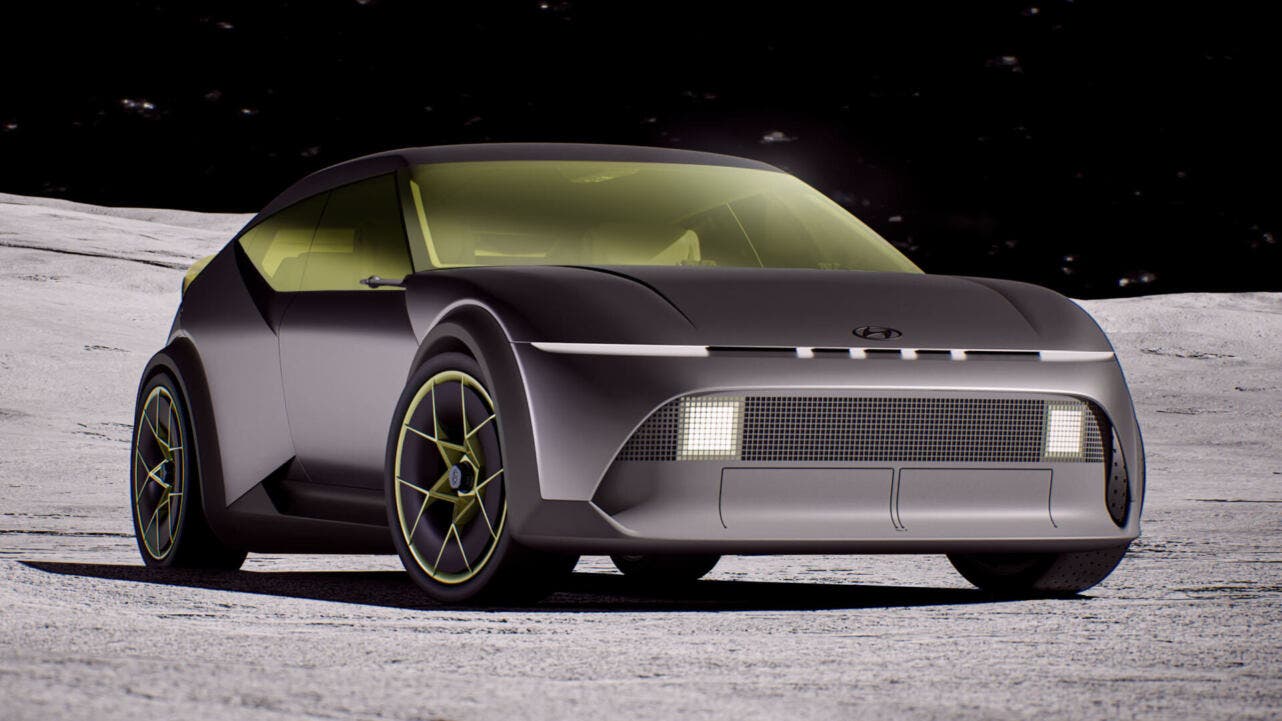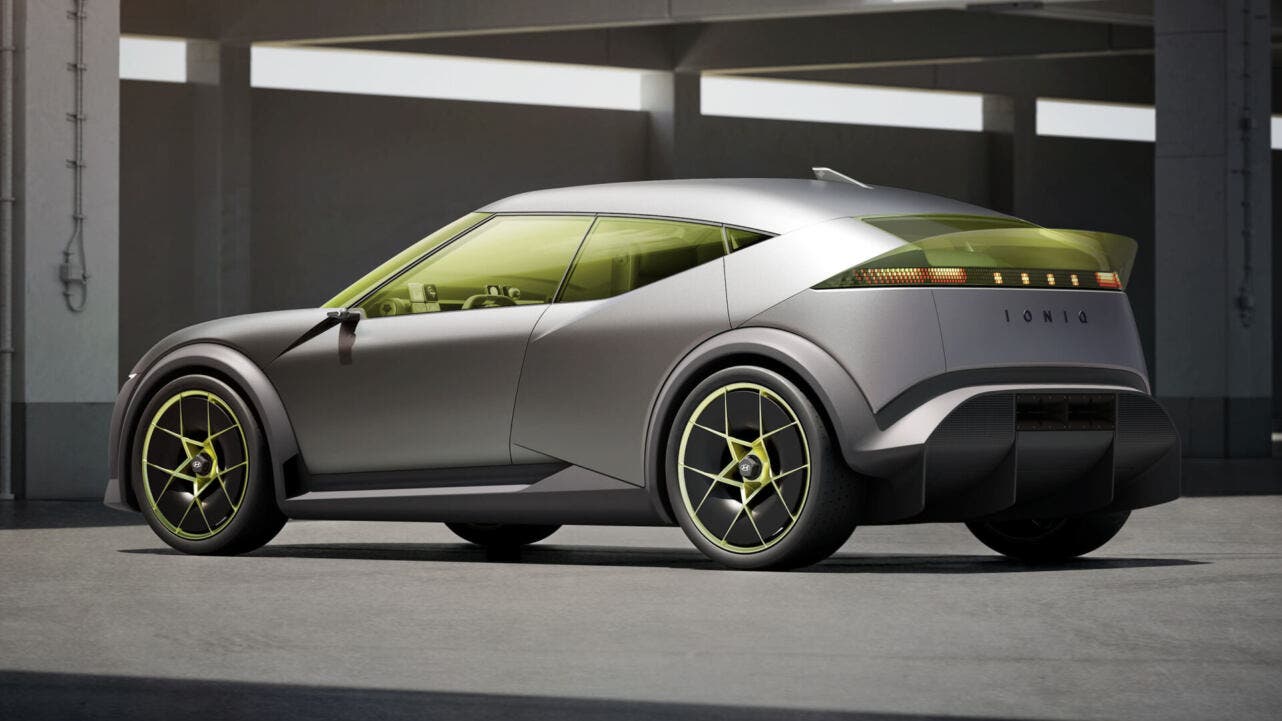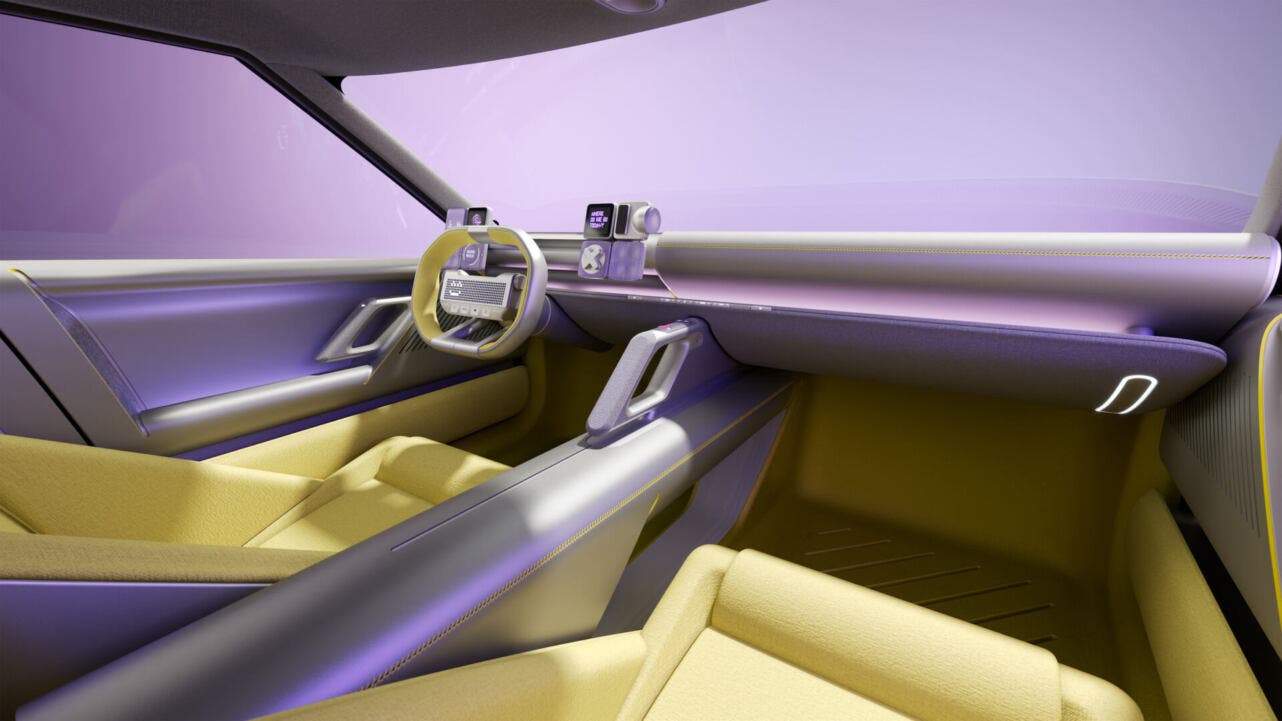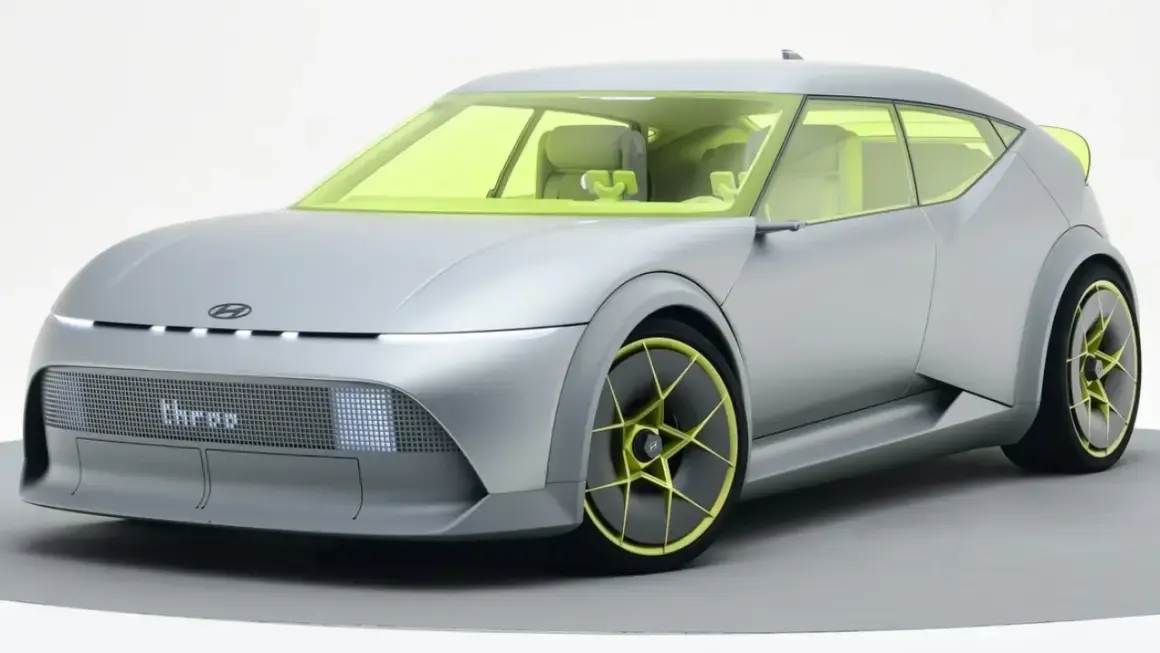Hyundai chose the international stage of the IAA Mobility 2025 in Munich to unveil a prototype that marks a key step in its electrification strategy: the Concept Three. This model directly previews the upcoming IONIQ 3, a compact all-electric car set to launch in 2026 and aimed at the highly competitive European B-segment.
With this move, the Korean automaker strengthens its EV portfolio, positioning the new model just above the smaller Hyundai Inster. The Concept Three’s proportions clearly define its role: 4,287 mm long, 1,940 mm wide, 1,428 mm high, and with a 2,722 mm wheelbase. These dimensions confirm its compact nature while ensuring interior space and comfort for urban and suburban driving.

Hyundai describes the prototype as a “practical and accessible mobility solution, designed to deliver an emotional and engaging experience at the same time”. Its styling is based on the “Art of Steel” design philosophy, inspired by Hyundai’s advanced steel technologies. Fluid surfaces and sharp lines emphasize strength and modernity, while the anodized finish highlights its unique character.

Both the front and rear are dominated by Parametric Pixel lighting units, the signature feature of Hyundai’s IONIQ EV family. Inside, the cabin adopts a minimalist yet sustainable approach. Shades of yellow and gray set the tone, complemented by yellow-tinted glass and matching alloy wheels. Materials reinforce Hyundai’s eco-conscious mission, including fabrics recycled from marine waste and lightweight aluminum foam. Several compact screens, with customizable widgets, allow passengers to personalize their in-car experience.

Technical specifications remain undisclosed for now, as Hyundai has yet to reveal details about the powertrain. Still, the company’s direction is unmistakable: by 2027, every model sold in Europe will feature at least one electrified variant, while on a global scale Hyundai plans to introduce 21 EVs by 2030.
